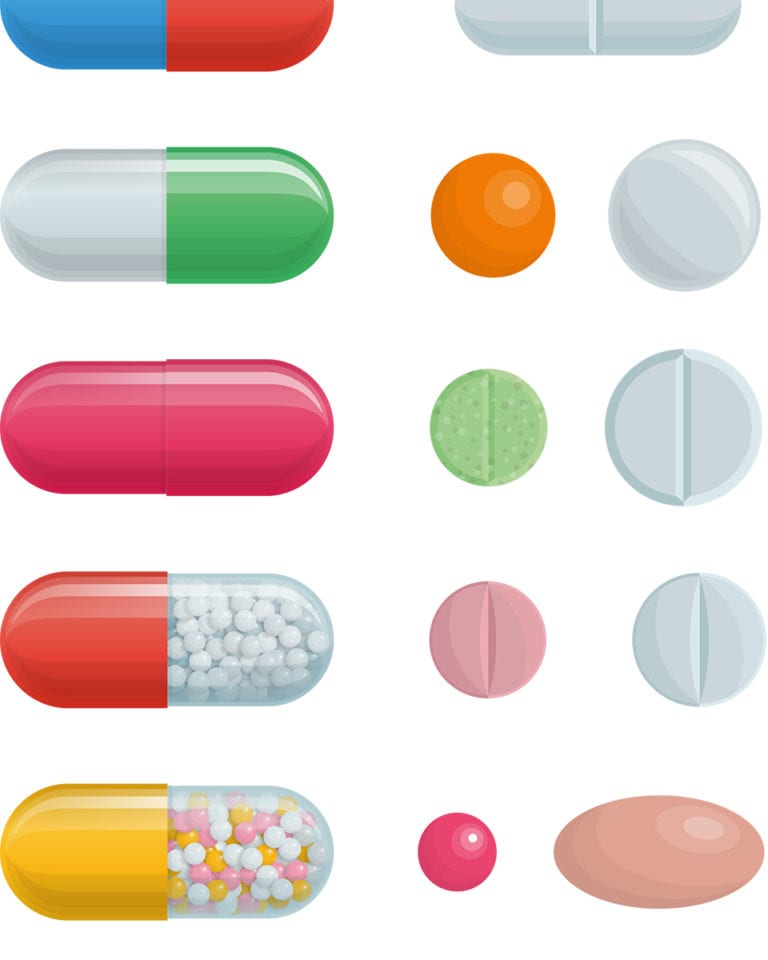Should we all be taking vitamin D?
The bone-strengthening nutrient, vitamin D, is made mainly in our skin when it’s exposed to sunlight. But should we be taking supplements in the dark UK winter months or can we get enough from our food – and is vitamin D really a cure-all? Sue Quinn ups your knowledge intake.

In the darker months between October and March, there’s insufficient sunlight in the UK for the human body to make vitamin D. According to the 2018 National Diet and Nutrition Survey, around 17% of British adults have inadequate levels of vitamin D, which is why Public Health England advises people to take vitamin D supplements for at least part of the year.
Doctors agree vitamin D helps maintain healthy bones, teeth and muscles, but beyond this, opinions differ. Many doctors and dietitians believe supplements are a good idea because vitamin D needs are difficult to meet through diet alone during the darker months. Others argue supplements are unnecessary for healthy people and might in fact be harmful for certain age groups.
To compound the confusion, vitamin D supplements are widely touted as a near-miracle cure for a range of conditions from multiple sclerosis and dementia to cardiovascular disease and cancer.
So, what’s the truth?
What is vitamin D?
Vitamin D is unlike any other vitamin: we make it in our skin using the sun’s ultraviolet B rays (UVB). During the autumn and winter in northern climes, including the UK, the angle of the sun is too low for enough UVB to reach the earth’s surface, so our vitamin D stores decline. This is a problem because very few foods contain vitamin D: oily fish, cod liver oil and some fortified foods contain good amounts, while small quantities are found in egg yolks, liver and wild mushrooms.

“It’s pretty unrealistic to get all our vitamin D from food, unless it’s fortified,” says Clare Thornton-Wood, registered dietitian and spokesperson for the British Dietetic Association. “We are designed to get it from sunlight.” But how much vitamin D do our bodies need?
How much is ‘enough’?
In 2016, after reviewing the evidence on vitamin D, the government issued new advice that adults and children over the age of one should consider taking a daily 10mcg supplement during autumn and winter (mcg is sometimes written as μg). Those at a higher risk of deficiency (whose skin has little or no exposure to the sun or who have dark skin) are advised to take a supplement all year round. It’s also advised that babies under one should take a daily 8.5-10mcg vitamin D supplement, except those fed infant formula, as it’s already fortified.
Not all experts agree that 10mcg is right for everyone, or that there’s one ideal standard dose. In the US, for example, 10-20mcg per day is recommended, dependent on age. And some studies suggest older people, particularly women, need more than 10mcg, as the ability to synthesise vitamin D diminishes with age. “Some groups may need more than the recommended dosage, but this should be advised by a pharmacist or other suitably qualified healthcare professional,” Thornton-Wood says.
Contested health claims
Vitamin D’s role in human health is complex, not completely understood and hotly debated. Severe deficiency is known to cause rickets (a condition that affects bone development in children) and osteomalacia (soft bones) in adults. Some research suggests a link between low levels of vitamin D and certain health conditions.
A study published in The BMJ in 2017 suggested a small benefit in taking vitamin D supplements to reduce the risk of respiratory infections. In 2018 the VITAL study of 25,000 adults in Boston, Massachusetts, in the US found a potential link between taking supplements and a slightly reduced risk of death from cancer (but not the actual risk of getting cancer). However, researchers stressed that further trials were needed.
Elsewhere, studies linking vitamin D and conditions including heart disease, cancer, multiple sclerosis, inflammatory bowel disease and type 1 diabetes have produced inconsistent results. Most of the health claims about the protective or curative properties of vitamin D supplements have not been proven in robust clinical studies. It could be that low vitamin D levels don’t actually cause disease – rather, it’s possible that disease can cause low vitamin D levels.
What is clear is that too much vitamin D isn’t healthy. “At high doses, vitamin D is toxic, as it’s fat soluble and the body has no satisfactory mechanism for excreting excess,” Thornton-Wood says. The maximum recommended daily limit in the UK – from diet and supplements combined – is 100mcg for adults and children aged 11 to 17; 50mcg for children aged 1 to 10 years; and 25mcg for infants. (Some countries list vitamin D in international units (IU): 1mcg/μg is equal to 40 IU of vitamin D.)
"Vitamin D’s role in human health is complex, not completely understood and hotly debated"
Disagreement and dissent
Not all doctors believe it’s necessary to take vitamin D. “Vitamin D is one of the most commonly used supplements in the UK, yet evidence for its benefit is sorely lacking,” says Tim Spector, professor of genetic epidemiology at King’s College London and regular delicious. contributor. “Studies have suggested that vitamin D is beneficial for more than 150 diseases, yet virtually none of these studies has stood up to scrutiny.”
Professor Spector says there’s little agreement about what a healthy level of vitamin D is, and he argues that the health benefits of taking supplements are unproven. “They should be discouraged, and sunlight and vitamin D foods prioritised instead.” In fact, he says, some studies suggest that mega-doses of vitamin D increase the risk of falls and fractures in older people.
For those who choose to take supplements, Dr Laura Wyness, a registered nutritionist, says vitamin D3 (cholecalciferol) is more effective than D2 (ergocalciferol) – check packaging for details. She also recommends taking supplements with food. “Studies have shown that taking a vitamin D supplement with the largest meal of the day improves absorption and results in about a 50 per cent increase in vitamin D blood levels,” she says.
The bottom line
Public Health England recommends everybody take a daily 10mcg vitamin D supplement in the autumn and winter. However, not all doctors agree on the dose or that supplements are necessary. Vitamin D is needed for healthy bones, teeth and muscles, but many claims about the benefits of supplements are not supported by robust clinical evidence.
Subscribe to our magazine
Food stories, skills and tested recipes, straight to your door... Enjoy 5 issues for just £5 with our special introductory offer.
Subscribe
Unleash your inner chef
Looking for inspiration? Receive the latest recipes with our newsletter


